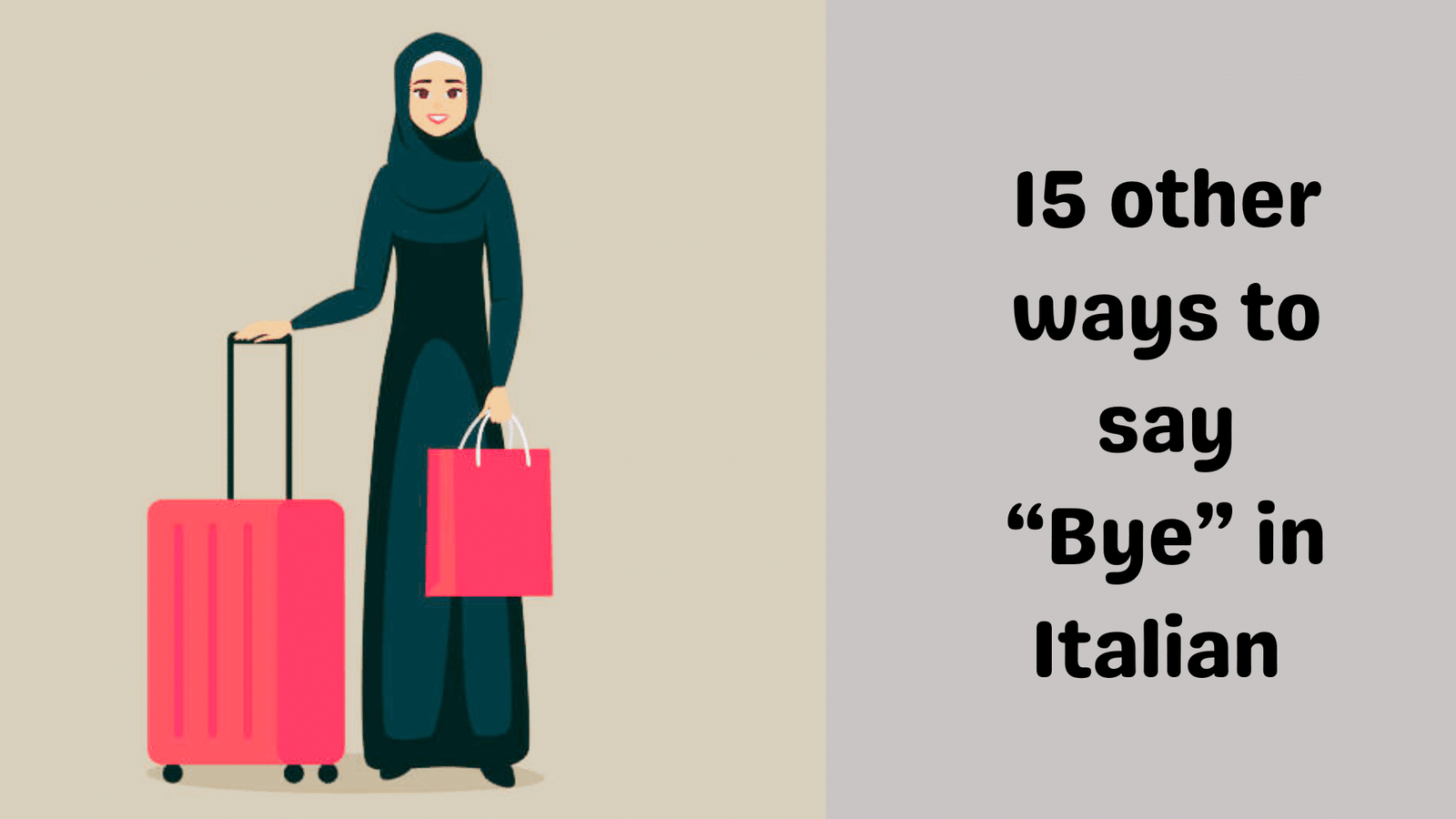
15 other ways to say “Bye” in Italian
Italian is a beautifully expressive language with a rich variety of ways to say goodbye. While most learners are familiar with “Ciao,” there are many other ways to bid farewell, each with its own nuance and context. Whether you want to sound more formal, affectionate, or casual, here are 15 alternative ways to say “bye” in Italian.
1. Arrivederci – “Goodbye”
This is one of the most common ways to say goodbye in Italian. It’s slightly more formal than “Ciao” and is typically used in everyday interactions. It literally means “until we see each other again.”
Example: Arrivederci, ci vediamo domani! (Goodbye, see you tomorrow!)
2. Arrivederla – “Goodbye” (Formal)
A more formal version of “Arrivederci,” this is used when addressing someone respectfully, such as a superior, an elder, or in a professional setting.
Example: Grazie per il suo aiuto, arrivederla! (Thank you for your help, goodbye!)
3. Addio – “Farewell”
“Addio” is a strong and somewhat dramatic way to say goodbye. It is used when you don’t expect to see the person again for a very long time, or possibly ever.
Example: Addio, non ci vedremo più! (Farewell, we shall not see each other again!)
4. A presto – “See you soon”
If you expect to see someone in the near future, “A presto” is a great way to say goodbye.
Example: Ci sentiamo più tardi, a presto! (We’ll talk later, see you soon!)
5. A dopo – “See you later”
Similar to “A presto,” this phrase is used when you anticipate meeting someone later in the same day.
Example: Vado a casa a riposare, a dopo! (I’m going home to rest, see you later!)
6. A più tardi – “See you later”
This is another way to say “see you later,” but with a slight emphasis on meeting at a later time.
Example: Devo finire il lavoro, a più tardi! (I have to finish work, see you later!)
7. A domani – “See you tomorrow”
A common farewell used when you know you will see the person the next day.
Example: Ci vediamo in ufficio, a domani! (See you at the office, see you tomorrow!)
8. A settimana prossima – “See you next week”
If you are planning to meet someone in a week’s time, this is the phrase to use.
Example: Abbiamo la riunione lunedì, a settimana prossima! (We have the meeting on Monday, see you next week!)
9. Buona giornata – “Have a good day”
A polite and kind way to part ways, wishing the other person a good day.
Example: Devo andare, buona giornata! (I have to go, have a good day!)
10. Buona serata – “Have a good evening”
This is used in the late afternoon or evening when you are saying goodbye and want to wish someone a pleasant evening.
Example: È tardi, vado a casa. Buona serata! (It’s late, I’m going home. Have a good evening!)
11. Buonanotte – “Good night”
This is specifically used when saying goodbye at night, often before heading to bed.
Example: È ora di dormire, buonanotte! (It’s time to sleep, good night!)
12. Ci vediamo – “See you”
This is a casual and common way to say “see you” without specifying a time frame.
Example: Ci vediamo presto! (See you soon!)
13. Ci sentiamo – “Talk to you soon”
This phrase is often used when referring to a future conversation, typically on the phone or via messages.
Example: Ci sentiamo domani per i dettagli! (We’ll talk tomorrow for the details!)
14. Statemi bene – “Take care”
A friendly way to say goodbye while wishing someone well.
Example: Devo partire adesso, statemi bene! (I have to leave now, take care!)
15. Saluti – “Regards” or “Best wishes”
This is more of a written farewell, often used in emails or letters.
Example: Resto in attesa di una sua risposta. Saluti! (I look forward to your response. Regards!)
Conclusion
Saying goodbye in Italian isn’t just about words; it’s about context, formality, and warmth. Whether you’re saying a quick “A dopo” to a friend, a formal “Arrivederla” to a business associate, or an emotional “Addio” to someone you’re parting with for a long time, each farewell carries a different sentiment. Learning these variations will not only enhance your Italian skills but also allow you to communicate more naturally and appropriately in different situations.
Next time you need to say goodbye in Italian, try using one of these expressions to add variety and authenticity to your conversation!






